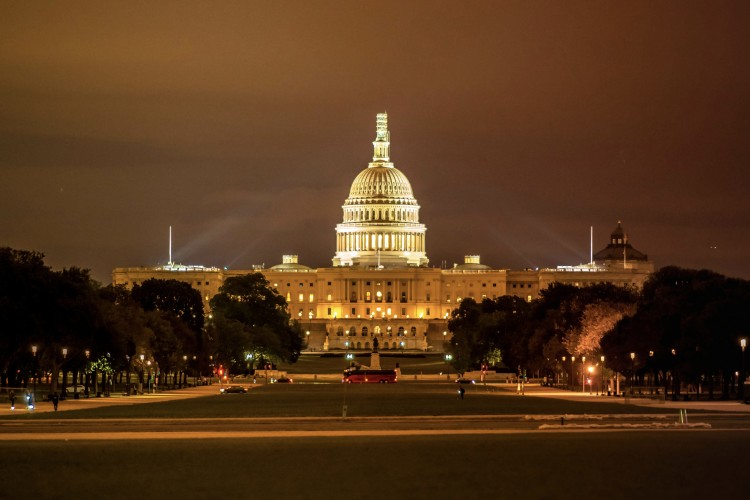FY2023 Federal Funding

Runaway and Homeless Youth (RHY) programs
RHY programs overall received $146.3 million in Fiscal Year 2023, a $6 million increase. Of the funds provided, Basic Center, Transitional Living, and Maternal Group Home programs received $125.3 million, and Street Outreach Programs received $21 million. The funding was accompanied by the following instructions from Congress to the Family Youth Services Bureau:
“The Committee [i.e. Congress] supports the ability of grantees to provide prevention services regardless of enrollment in residential services, and urges the program to remind grantees that they are not required to enroll a young person in shelter or residential services, nor require the young person to physically travel to the grantee’s location, in order for the young person who is deemed at risk of running away or becoming homeless to be eligible to receive prevention and supportive services, including counseling and case management.
The program is encouraged to notify applicants if grant applications were successful at least 30 days before the grant is to begin,or no less than 30 days before an existing grant is set to end. The Committee strongly urges the program to ensure that service delivery and staff training comprehensively address the individual strengths and needs of youth, as well as be language appropriate, gender appropriate (interventions that are sensitive to the diverse experiences of male, female, and transgender youth, and consistent with the gender identity of participating youth), and culturally sensitive and respectful of the complex social identities of youth (e.g., race, ethnicity, nationality, age, religion/spirituality, gender identity/expression, sexual orientation, socioeconomic status, physical or cognitive ability, language, beliefs, values, behavior patterns, or customs).
The Committee strongly believes that no runaway youth or homeless youth should be excluded from participation in, be denied the benefits of, or be subject to discrimination under, any program or activity funded in whole or in part under the Runaway and Homeless Youth Act, based on any of the conditions outlined in this paragraph.”
Youth Homelessness Demonstration Program (YHDP)
The Youth Homelessness Demonstration Program once again received $107 million in FY2023, representing level funding with the prior fiscal year. This represents the 8th round of funding for YHDP. Furthermore, Congress provided $25 million for Systems-Change Planning Grants for purposes of capacity building and systems-innovation for communities that have not yet had the opportunity to make full use of the YHDP models. Congress included following direction to the Department of Housing in Urban Development regarding the implementation of these Planning Grants:
“[Congress] directs HUD to ensure that sufficient technical assistance resources and equal consideration for youth homelessness system improvement grants are provided to rural areas. When determining grant awards, the agreement encourages HUD to incorporate the following components as objectives for grantees: youth collaboration in project design and implementation, including establishment of local youth advisory boards; quality data collection, management, utilization, and evaluation; direct coordination and communication with service providers; cross-system partnerships including juvenile justice, child welfare, and education systems; and prevention and diversion strategies. The agreement prohibits the use of these funds for direct services or housing.
Additional direction provided includes:
[Congress] directs HUD to provide the new evaluation of the youth homelessness demonstration program [YHDP] to the House and Senate Committees on Appropriations no later than November 1, 2023.
[Congress] reminds the Department and CoCs that renewal funding provided for YHDP projects may only be used for eligible youth-specific activities upon reaching renewal status. HUD is encouraged to provide public-facing information to grantees regarding the YHDP renewal process.”
Youth Mentoring Grants (YMG)
The Office of Juvenile Justice and Delinquency Prevention’s (OJJDP) received $107 million for the Youth Mentoring Grants program, a $5 million increase over fiscal year 2023. Congress also provided substantial instruction to OJJDP regarding the use of such funds.
“The Committee recognizes the success of the Youth Mentoring program. Through trusted peer-to-peer mentoring relationships, in the community and in schools, Youth Mentoring grantees can provide needed attention and support to at-risk children. Mentoring relationships enhance a child’s overall well-being by improving their emotional, social, and educational development. The Committee recognizes the value of community partnerships, including from business, government, education, and labor, to advance career and technical education (CTE) and science, technology, engineering, arts, and math (STEAM) concepts and goals for youth participating in mentorship programs. The Committee directs the continued solicitation towards youth mentorship programs pursuing these community partnerships in order to support the ability of youth to translate CTE and STEAM skills and concepts to future career achievement.
The Committee understands the importance of mentorship experiences tailored to mentees’ backgrounds. Accordingly, the Committee encourages support for Black, Indigenous, and people of color (BIPOC)-led organizations to increase the impact and availability of mentors serving whose identities reflect mentees’ own identities.
The Committee believes that the Department must take a more aggressive approach to disrupt the school-to-prison pipeline and limit out-of-school suspensions. The Committee encourages the Department, in coordination with relevant partners such as the Department of Education, to explore implementing programs that are focused on disadvantaged students of color in elementary and secondary school; available to all schools in all districts; and include a curriculum that prevents unnecessary trauma and harm; incorporates positive alternatives to suspension, in-school arrests, and expulsion; and promotes educational development and attainment.
The Committee looks forward to the report directed in House Reports 116–101 and 116–455, detailing how the Department could partner with relevant stakeholders to implement such a program. Furthermore, the Committee notes that exposure to community violence, domestic violence, and violence in school—coupled with pervasive poverty—impacts the thinking, behavior, and well-being of girls. This results in high rates of school dropouts, physical and mental illness, and involvement in the juvenile justice system. The Committee directs the Department to encourage grantees to identify opportunities for prevention programs aimed toward girls who are at risk of contact with the juvenile justice system.”
2023 Federal Funding Webinar
Washington is as complex as ever, but this webinar will make it simple as we walk you through what to expect out of DC this year, its relevance to you as a youth service provider, and how to best prepare your organization. Youth Collaboratory’s Washington representative, Christopher Fisher, will provide an update on the status of the annual appropriations process, while Youth Collaboratory’s Executive Director, Megan Blondin, will prepare you to take full advantage of 2023 funding opportunities. Register here.


